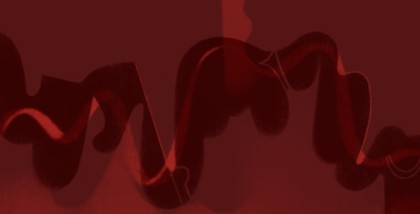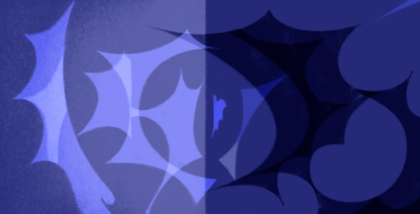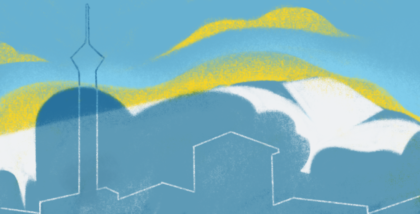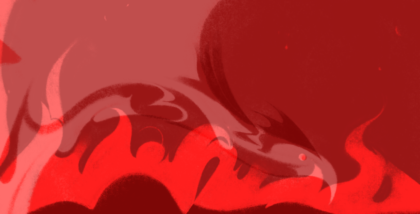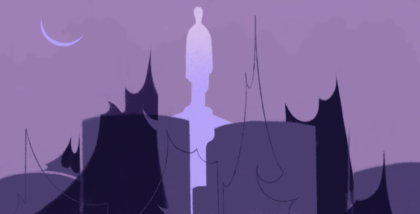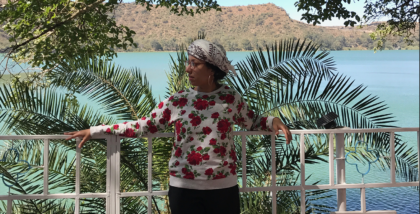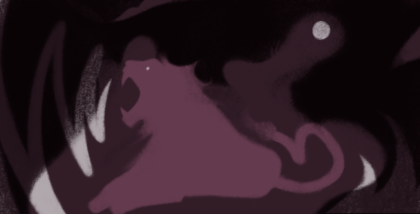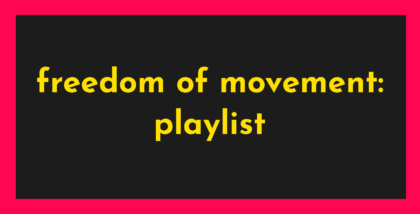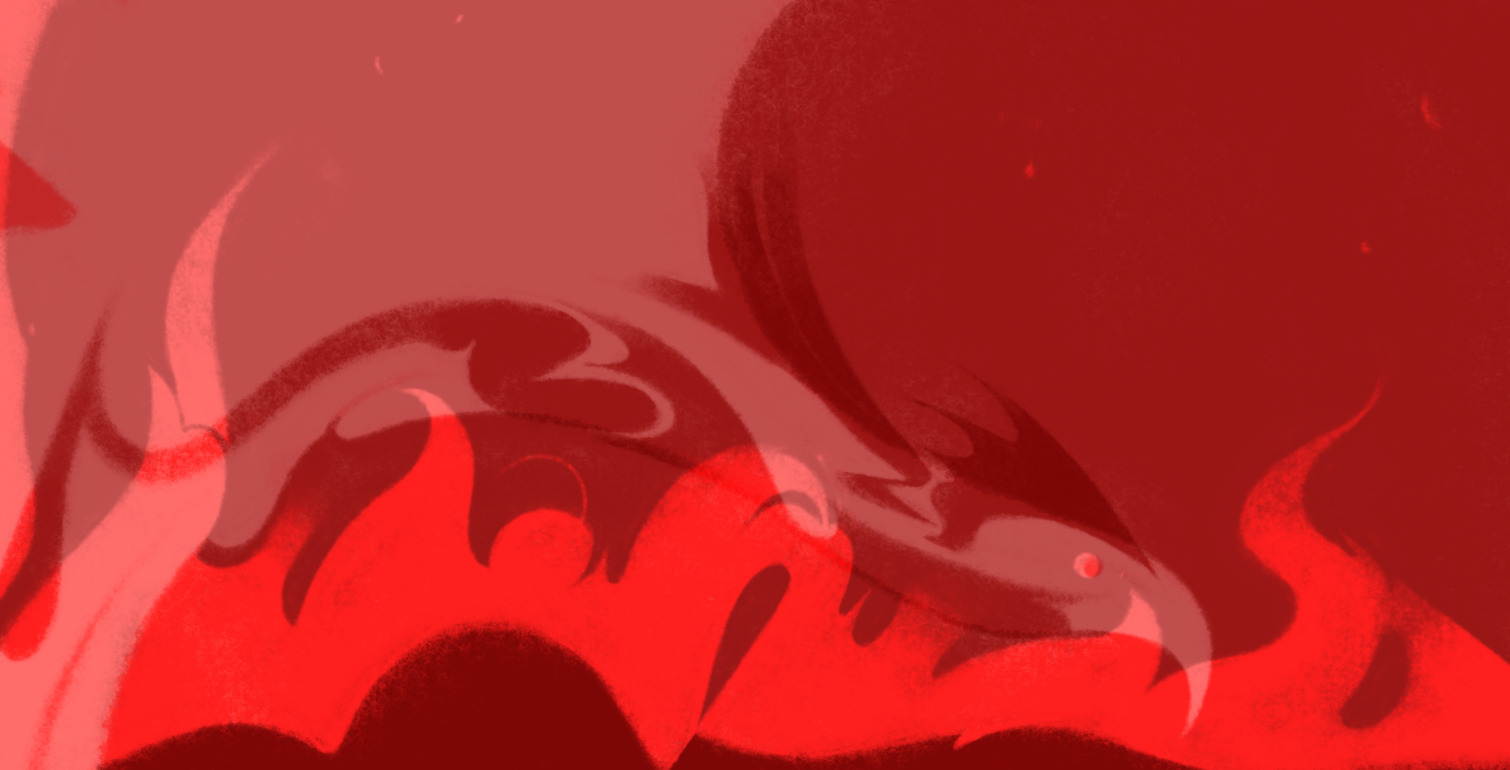 Illustration: Xia Gordon
Illustration: Xia Gordon
‘Where were you last night?’ a man asked me down the telephone line. It wasn’t anyone familiar to me, but the receptionist at the Maansoor hotel in Hargeisa, Somaliland. He hadn’t seen me collect my key from the front desk the previous night and wanted an explanation. I told him brusquely that I had spent the night in my room as usual and then ended the call. The hotel is one of the largest and most popular in the breakaway republic’s capital city, where diaspora families decamp in the summer, where locals hold wedding parties, and where Western aid workers and visitors relax behind tight security. It is a place where freedom and privacy are simultaneously offered and contested, much like the country as a whole.
Since declaring unilateral independence from Somalia in 1991 after a civil war that fragmented the Marxist Somali Democratic Republic, Somaliland has been described as the most democratic country in the Horn of Africa, with largely free and fair elections that have allowed five presidents to take power since its independence. But within the nation there is still an ambiguous relationship to the concept of “freedom,” whether personal, political, or artistic. And just beyond its borders are other considerations and complications. Its legally unsettled relationship to Somalia strips many freedoms from its citizens: the right to travel to most countries on Somaliland passports, to obtain visas to the US (as Somalilanders are considered Somali citizens by the US and therefore hit with Trump’s travel ban), or to have their academic or professional qualifications accepted overseas.
During Siad Barre’s “scientific socialist” dictatorship in the 1970s and ’80s, freedom was a dirty word unless it referred to the “freedom from imperialism” that the military regime claimed to be enabling. I was born in a city with a four p.m. curfew, a two-story limit on new buildings, banned political parties, banned radio stations, banned thoughts and words. My brother remembers the vans with megaphones careening through the neighborhood, announcing public executions of “rebels” and nighttime raids, while he was hidden by our mother for fear of being conscripted into the army. The civil war is seen in Somaliland as the blood sacrifice necessary to have lifted a kind of “pharaonic oppression” from the local population, like a curse.
After the war came political parties (limited to three), separation of political power, elections, a semi-free press, an end to conscription, protection of private property. In a region where repression is pervasive, all of these freedoms might appear extravagant, unfeasible. But they are perhaps ensured by Somaliland’s still-indefatigable campaign for international recognition. It is the neighborhood swot, reading textbooks late into the night and polishing its shoes bright in the morning in order to attract the praise and support of the global community, while its irascible twin, Somalia, claims the limelight. It’s not surprising, then, that Somaliland’s leaders (many of whom served in the Barre dictatorship) are intolerant of further demands for political and individual liberty. They believe they have been extraordinarily magnanimous already, and somewhere behind it all is that old belief that Somalis, like all colonial peoples, need a strong hand to keep them in order.
This internal and external pressure on young Somalilanders reminds me of this line spoken by Hamlet: “I could be bounded in a nutshell, and count myself a king of infinite space, were it not that I have bad dreams.” Somaliland is no nutshell, but it is a poor, small country with a population of only three-and-a-half million, and it is these “bad dreams”—of poverty, obscurity, subjugation—that lead thousands of men and women to leave the safety of their homes every year for another life in the Middle East or Europe.
What does individual choice matter to a country that deep down still holds the smoldering embers that could spark another conflict?
Although not forced out by violence or political instability, the hard-won peace in Somaliland means citizens have the space to think about what else is missing in their lives: gender equality, religious freedom, distance from controlling parents, a meritocratic rather than nepotistic society. I remember speaking to a cousin in Hargeisa about the “chronic dissatisfaction” amongst young people there; he also wanted to leave despite a possible career in the military and managed a few weeks in China before his money ran out. He wasn’t sure why he wanted to emigrate, but just felt that success (whatever that means) was easier outside of Somaliland.
The peace that Somaliland has found in a “troubled” neighborhood has come at the price of a paternalistic and often dismissive attitude toward the desires, thoughts, and beliefs of ordinary people. Whether it’s girls who wear their hijabs a little too far back or write poetry in support of a unified Somalia, or boys who grow out their hair or work for independent media stations, punishment is swift and uncompromising, with arrest and detention almost a certainty. What does individual choice matter to a country that saw tens of thousands dead as it pulled itself out of civil war? To a country that deep down still holds the smoldering embers that could spark another conflict?
Every choice made is one that tugs at your connection and loyalty to your family, your neighbor, your clan, your country. A wife needs permission from her husband to get the contraceptive pill, a sensible surgeon will seek the consent of the father or guardian of their patient (male or female) before any operation, a journalist or writer’s clan will be embroiled in any controversy surrounding their work. We are all Russian dolls, the message seems to be, containing multitudes and being similarly contained. What sanctuary that provides! To not be alone in the world but to be swallowed up by ever-larger bodies until there is only God to answer to.
There have been times in Somaliland when I have been grateful for the surveillance of others. Once, when I found myself stuck outside the city and had to hitchhike with strangers, another hotel receptionist tracked me down and somehow got the number of the driver to “suss him out.” I was delivered safely back to my hotel in Hargeisa that same evening. In a world where loneliness is an epidemic and isolation takes a physical and mental toll on much wealthier nations, the intimate social structure in Somaliland can sometimes seem the lesser of two evils.
I have a suitcase of clothes that I wear only in Somaliland: a rainbow array of headscarves, long skirts that do not rise too high when I sit or let too much light through when I stand, shirts that cover my behind, dresses that cover the arms, flowing jackets that pick up the slack for any garments underneath that don’t quite measure up. It is the only country I visit that requires its own wardrobe; all the other Muslim countries I’ve travelled to have been able to accept my halal-ish outfits.
It is with Iran and Saudi Arabia that Somaliland is aligned on this. But in fact, in September of this year the dress code for visitors to Saudi Arabia was changed and the previous requirement to wear abaya and hijab in public was dropped, while all women—foreign, local, Muslim, non-Muslim—in Somaliland are expected and told by local organizations to cover both hair and body. By controlling bodies the authorities exhibit their domination of much more; a woman wearing trousers is seen as an aberration, a threat to patriarchy, and she will have to run a gauntlet of police officers and private citizens all intent on enforcing rigid gender roles. How and why has Somaliland fallen into this situation where it permits some freedoms—women work, vote, drive, stand in elections, hold ministerial roles—but severely restricts others? Maybe the answer lies in the war and the dislocation it left behind.
My family left Hargeisa for the UK in late 1985, when I was four years old, locking most of our clothes, photos, and possessions in our house for our expected return. My sailor father wanted us to leave, as he was about to retire from the merchant navy and thought, unlike the rest of us, that Somalia was on the road to war. He was right: just two-and-a-half years after we left, Hargeisa was flattened and more than 50 thousand people were killed.
Even in London, the war and its impact on the Somali psyche was profound. In the early 1990s, I remember the slow cultural shift as refugees arrived from Ethiopian and Kenyan camps or directly from Somalia and responded to the laissez-faire world of Somali sailors and their families who had been in the UK for several decades, settling in port cities where jobs in the merchant navy could be found. Many sailors had picked up British habits—dances, gambling, Western clothes—safe, they believed, from the prying and judging eyes of Somalis outside their world. But that seclusion and freedom came to an abrupt end in the early ’90s. As this new wave of Somalis flooded into Britain, the small, longstanding communities in London, Cardiff, Liverpool, and Hull were quickly outnumbered and outflanked. My family was somewhere in the middle, my father having arrived in the UK in 1947 but the rest of us still adapting to this very strange country.
It was as if the surveillance apparatus of the Siad Barre regime had been dismantled and transported to London.
I felt it in the shouts of “shame!” I heard walking around in jeans and T-shirt, in the comments from stern women in black abayas as I struggled onto the bus with a violin, in the laughter aimed at my Somali accent. Squeezed between a hostile British world and a strict and challenging Somali community, it was difficult to ever feel truly free.
As a child I had always expected to return back to the life I had left in Hargeisa—with my grandmothers, cousins, and school-free days—but I was suddenly made to feel that I wouldn’t fit in there, that I wouldn’t be a good Somali girl. That unlike these severe women, I had already been corrupted by my life in Britain. As a young woman it is always difficult to feel unobserved, autonomous, unhindered, but in hindsight it was as if the surveillance apparatus of the Siad Barre regime had been dismantled and transported to London, to report on where I was, how I was dressed, who I was with. My female body became the site of suspicion and control, especially for female refugees who were trying to make sense of the implosion of the rest of their lives.
I found refuge in religion, a counterintuitive choice for a teenager who was just starting to travel and step out into the world, but I wanted to know what the legitimate limitations on my life should be. In a chaotic school with high rates of teenage pregnancy and drug use, with images of my former homeland in mayhem on TV, I read the Quran every night and taught myself to pray, rang imams for spiritual guidance, and went to the Regent’s Park mosque to celebrate my birthday. Freedom had become less attractive than the promise of acceptance, the need for security more urgent than the desire to branch out alone.
It is difficult to pinpoint exactly what “normal” or “natural” looks like in a Somali context, as the place has seen upheaval for the last 150 years. What did freedom look like to my father in the ’30s? To my grandmother? To my great-grandfather? How was freedom limited before the arrival of the British and their prisons, corporal punishment, and gallows? My father was born into a world in which the way you lived or died was largely a personal matter, a hardscrabble way of life that ensured a stubborn individuality, for men at least.
I remember a beautiful story my father told me of a journey he had taken with a female cousin, when they were both around 11 years old, deep into the Somaliland desert to look for their clan’s livestock. Both of them were already self-sufficient enough to just walk off into the unknown. But my grandmother also roamed and worked her way across East Africa and Yemen because there was nothing her nomadic family could offer her back home. The horizon was the mutable limit to individual freedom; cross it and you could be another person.
Throughout the 20th century, Somalis navigated a complex cultural and intellectual world: educated in English, Italian, or Arabic, schooled in Marxist or Wahhabi dogma, operating in capitalist or communist systems, espousing feminism or denouncing it. Families crisscrossed these fault lines without too much friction. But after the declaration of independence by Somaliland in 1991, the need to define who belonged to this new country and who didn’t took on a real urgency. How could you knit these disparate parts back together unless you put collective need before individual desires?
The idea of the collective was an important one in the Western world until the mid-20th century, but since then the individual has been paramount, our self-definitions becoming harder and harder to gather into any kind of universal spirit. In Somaliland I regularly hear the phrase “I am Somali, I am Muslim.” A kind of mantra, it’s often used in social media bios, and is an assertive proclamation of a collective identity (a particularly maligned one) over an individual one.
The ideal of a cacophonous liberal democracy appeals to me, but silence also assumes an important place in a traumatized nation.
As Britain starts to fragment into small, opposing pieces, it is easy to see how the deification of individual thought and freedom can pull apart even an established and wealthy state. The Somali approach seems to be to accept the clannish and tribal nature of people and to allow that to create a centripetal force rather than a centrifugal one. The ideal of a cacophonous liberal democracy appeals to me and to many others, but when neighbors turned on neighbors in a civil war, silence also assumes an important place in a traumatized nation.
I often think about the person I would have become if I had stayed in Somaliland, this parallel life running alongside my real one. Would I be a lover of books had I stayed? Would I have had ten children? Would I have lived a life of gratitude and emotional plenty that would compensate for whatever I lost? Maybe it is because I grew up in an environment strange to me that I have been able to form this more organic and freewheeling version of myself. The freedom to choose many aspects of my life gives it a false sense of intentionality, a narrative that only makes sense when I exclude all the things beyond my control. I am someone who has made sense of life through the written word, but I’m only the second generation of literate people in my family. I can write more freely in Britain than in my home country, but even here I can hear the voices of those abaya-clad women in my mind patrolling my thoughts, my words, telling me to hold back. I seek the freedom that can only be found in solitude, yet the process of writing quickly escapes that solitude and my control.
Somaliland is a symbol of how oppression can be taken apart, brick by brick, by individual hands. But what it means to feel truly “free” is something that transforms from person to person, society to society, and can only be measured retrospectively, when new freedoms are won.
